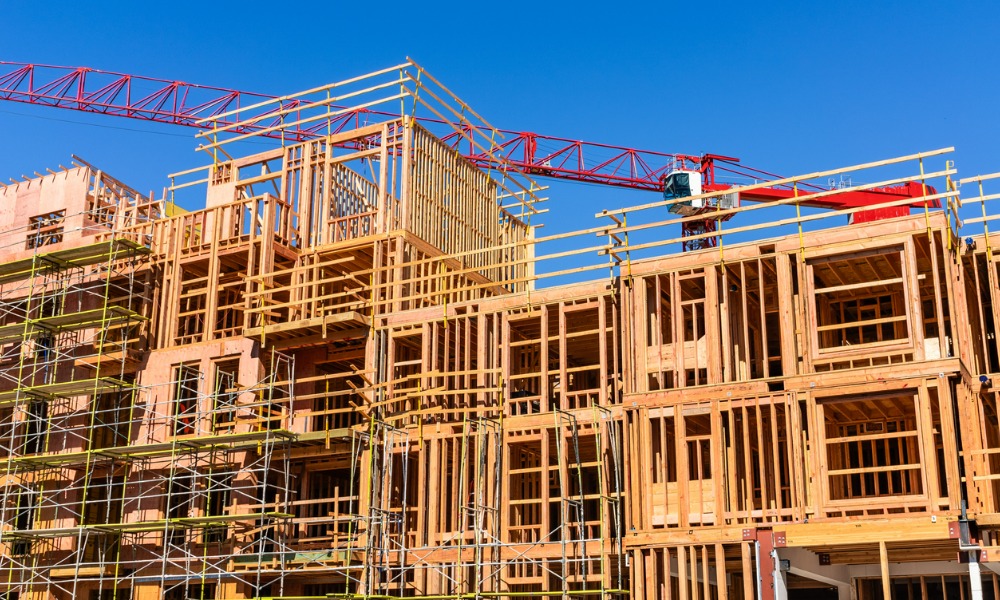Supply and labour issues are the foremost challenges on this front, according to observers

The number of construction industry workers in Canada might not be enough to fulfill the federal government’s promise of building hundreds of thousands of new homes over the next decade, observers say.
“The reality is, they’re dealing with labour shortages, they’re dealing with material shortages, they’re dealing with all kinds of challenges in obtaining the material that they need to build homes,” said Jean-François Perrault, chief economist at Scotiabank.
Chief among the strengthened housing pledges in Budget 2022 was the Housing Accelerator Fund, a $4 billion tranche over five years designed to help municipalities speed up construction approval times, update zoning and permit issuance systems, and increase densification. The fund is aiming the development of 100,000 additional units by 2024-25.
Another crucial component of this strategy is the Rapid Housing Initiative, which has been extended by two years up to 2023-24, and will be investing around $1.5 billion to create at least 6,000 new affordable housing units.
Read more: How quickly will Budget 2022 impact the market?
A major weak point that policymakers need to address is making the construction industry a viable career path for the next generation.
Richard Lyall, president of the Residential Construction Council of Ontario, said that currently, there is a large gap in the Canadian educational system’s focus on developing university applicants, not apprentices nor tradesmen.
“It’s really sad to see … you get kids that are coming out of high schools into nothing, when they have aptitudes for skilled trades, but they were never properly tested or identified or encouraged to pursue it,” Lyall said. “We need to fix that.”



